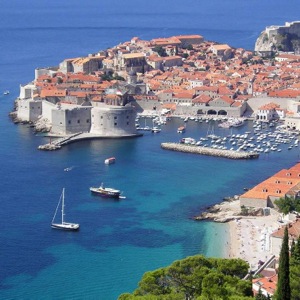
Integrative Approach to Understanding Complex Trauma: The Role of Culture and Other Contextual Denominators
Due to industrial development, mass migrations, globalization, and information revolution the world has rapidly changed ever since. Nowadays, psychiatrists and psychologists in the western, industrialized world are on a regular basis facing patients whose cultural backgrounds are different from their own, and whose psychopathology may not be adequately framed within the evidence-based western paradigms for understanding of mental health well-being and illnesses. Therefore, it becomes more and more important to culturally translate the evidence provided in predominantly western psychiatric research and to conceive and develop more comprehensive and culturally responsive approaches that are better tailored to patients’ specific characteristics.
Individuals who have been repeatedly exposed to extreme forms of violence may develop chronic and complex forms of the posttraumatic stress disorder (PTSD) and other mental health problems. Moreover, impact of exposure to extreme violence may ripple further and target a “survivor’s environment” – from his/her family and other close-ones to a large societal group that a survivor belongs to. Forced migration post-trauma brings with an additional set of changes and challenges that a survivor is confronted with, and may change (sub)cultural, religious, economic and other aspects of his/her life. All these impacts may influence mental health. The PTSD paradigm is designed to capture the intrapsychic sequelae of exposure to violence, but may fail to include a broad spectrum of damage that exposure to extreme traumatic experiences may cause to the survivors’ context.
The urge to conceptualize post traumatic impacts beyond the PTSD paradigm and the development of alternative culture-, and contextsensitive, integrative paradigms for understanding complexity of reactions to extreme traumatic experiences form the starting point of this course.
Throughout the course, highly acclaimed international experts will share their knowledge and opinions about the above mentioned topics. Since the recently launched DSM-5 is more inclusive with regard to the cultural and contextual determinants of psychiatric disorders than any earlier diagnostic manuals, we hope that a momentum has come for clinicians to learn about a more comprehensive practice in psychiatry and psychology.
Daily Schedule
09.00 – 13.00 and 17.30 – 19.00
Masterclass – lectures, discussions, and workshops
Venue
Dubrovnik Inter-University Centre
Don Frana Bulica 4, Dubrovnik, Croatia
www.iuc.hr
Welcome Party – Sunday, June 1st 2014, 18h
Masterclassses by:
Prof. Brandon Hamber, Northern Ireland
Dr. Nimisha Patel, United Kingdom
Prof. Cecile Rousseau, Canada
Dr. Boris Drožđek, The Netherlands
Official language is English.
Croatian attendees obtain 15 credits from Croatian Medical Chamber. International attendees obtain 3 ECTS credits.
School Directors:
Prof. Rudolf Gregurek, Croatia
Dr. Boris Drozdek, The Netherlands
Prof. John P. Wilson, USA
For more information about the speakers and a registration form, please click here.



